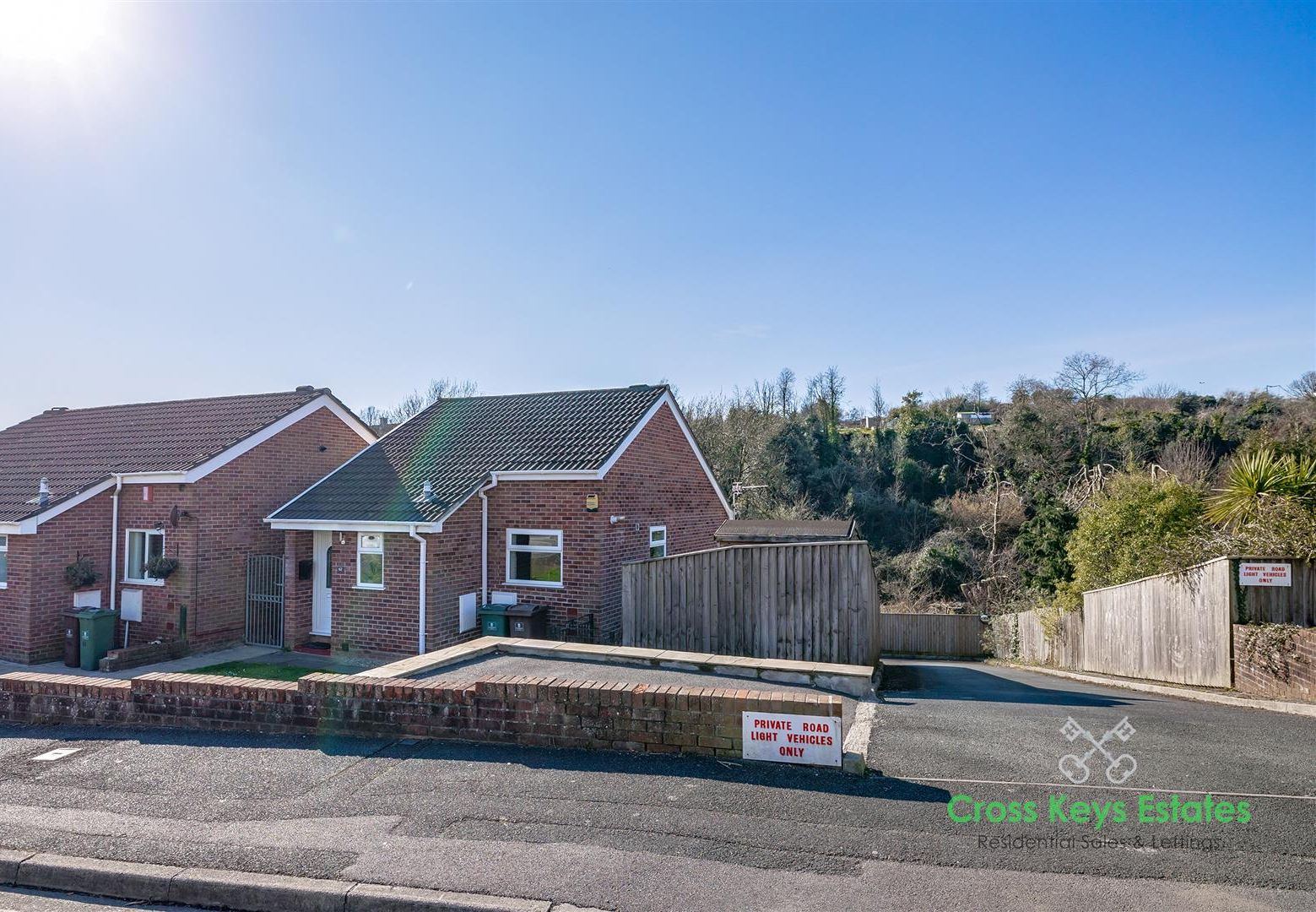Yes it is that “B” word again, and yes I know how fed up most of you are with hearing about it, but here is the thing, what will the Brexit effect have on your home?
Some of the big financial experts in the city have readily declared that a NO DEAL Brexit will have a catastrophic effect on your house value, your house income and your household expenditure. The only figures that have been quoted though is up to a 30% drop in property values although they haven’t actually given us any specifics. I have to say that in my two decades experience of being a property professional, I have heard these scare tactics before and they have in no way ever affected property prices in the south west to this extent in the past, despite the big London experts and their opinions.
The value of the pound is already dropping to an unexpected low with it almost being on parity with the euro at this current time due to the fact that there is a real chance of a “no deal Brexit” which had previous been thought to have been taken off the table due to all of our beloved politicians not being able to work together for the good of the country. This is similar to playing a game of poker when you actually show your opponent what cards you are playing with and then wonder why you are losing the game.
Gross Domestic Production (GDP) fell in the second Quarter (Apr to Jun) following the strong growth seen in the first Quarter (Jan to Mar), this was most certainly due to companies, and the general public, stock piling and building up reserves in readiness for the March 29th original date for leaving the EU. When this didn’t happen, these people and companies had enough reserves that they didn’t need to purchase these things in the second quarter, hence the strong growth followed by the drop, surely this is simply common sense.
Even with all the doom and gloom that is being batted around like a game of ping pong by the politicians, industry leaders and so called financial experts, one thing seems to have escaped them and that is the fact that life still goes on. We are already seeing more “Staycations” than ever before meaning more of our hard earned income now actually being spent in this country supporting our tourist trade and the thousands of people employed in it.
If we cannot get certain foods from abroad, we will have to buy more UK grown produce bringing more income to our UK produce businesses and farms. If we buy and use our own services rather than relying upon foreign imports our economy will grow. It is purely that we come to expect that we can have whatever we want to buy no matter where it comes from and no matter at what time of the year, it is with no thought as to what this has already done to our country’s GDP.
As for houses, as I see it, people will always want to have babies, babies grow into children, into teenagers, into adults and then into families of their own. People will continue to marry and divorce. People will relocate for work or for pleasure and the effects of all of this is that they will need a roof over their heads. Will the property market here in Devon go down? I think that the uncertainty of Brexit will have an effect but for us in the south west, it will probably be more of a slowdown effect on the market rather than a downward effect of the value of property.
With the price of property nearly at an all time high, a lot of people are looking at the rental situation instead of committing to purchasing, this gives them some more flexibility over where they can live as they can rent a property in an area that they probably couldn’t afford to buy. With the recently introduced tenant fee ban and the limitations that this is bringing to the residential lettings industry, time and conditions have never been better for a tenant.
In the past the traditional process for a letting agent has been to make a charge for processing a tenant’s application to rent. An “Assured Shorthold Tenancy” (AST) would be put in place by the agent with a minimum term of six months. After this initial six month period, the tenancy is still in place on a monthly basis until such time as either the landlord or the tenant puts in their notice. This is the most common way, however in the past some of the corporate companies used to issue two months notice to all their tenants on the fourth month so that the tenancy ends in line with the end of the six month period, even if the tenant had no intentions of leaving. When the tenant then said that they did not want to leave and were happy to continue the tenancy, the agent would charge them another administration fee to process a new AST. If the tenant decided that they did not want to incur the additional cost and therefore leave the property, the agent would remarket the property, claim a new fee from both the landlord and the new tenant that would take the property, a win win situation for the agent.
A lot of the big national lettings firms went around acquiring many of the smaller companies, in recent years, in order to swell the number of properties that they would have on their books and give them more opportunity to multiply their income from these recurring tenant fees.
This is the situation that the government is trying to stop, unnecessary repeat fees being charges to the people that are least able to afford them, the tenants. Cross Keys Estates have never used this practice, nor do we condone the use of it by other agents. It is unfortunate that the government has brought in this blanket ban instead of targeting the repeat fee companies. We are already seeing that some rent prices are being increased in order for some of these bigger companies to try to reclaim some of this lost income and the only people who will suffer will be the tenants as cost will soon be similar to the sales side and near to record levels. A small two bedroom house used to rent for between £550 to £595 per calendar month, now the same houses are currently getting a rental figure anywhere between £650 and £695 a month.
One myth that most people have about landlords is that they have lots of properties and make lots of money from the most vulnerable sector of the society by charging large rents. This for a large percentage of Cross Keys landlords is simply not true. A lot of landlords have maybe only one property that they rent out, some only have this because the down turn in the sales market when prices crashed meant that they would be in negative equity if they were to sell so instead, they kept the property and rented it out so that the rent would just about cover any outlay that they had on it, thus giving them the ability to buy another home for them to live in. This is still the case in some areas. There are, of course, some landlords that do have multiple properties and indeed do make a living from this industry, but it is my experience that nearly all the landlords that I have ever met or had dealings with, are really nice, kind and understanding people that are offering a valuable service to a country that has a very real housing shortage.
Yet again we find ourselves in the situation that everyone who is in the know says that we are hitting hard times with the property market as a result of Brexit, well, Brexit is still not here and nor is the crash that the “experts” were predicting. Things went right to the wire for the March deadline but the market here did not react, if anything, here at Cross Keys Estates, we witness a substantial rise in the number of sales that we have agreed over the last few weeks.
According to the Royal Institution of Chartered Surveyors (RICS), uncertainty over Brexit is likely to have an impact on the UK housing market. RICS believe, and have come up with a report, that the number of properties being sold and the prices that they will achieve will fall next year, they say that fewer people are interested in moving, and fewer want to sell if they cannot reach the price they want for selling their property. House prices are predicted to increase this year but only by 1.5%, this is well below the rate of inflation. In essence, this equates to a price decrease.
Having multiple offices in Plymouth means that Cross Keys were able to look at all types of properties across the price spectrum and in all cases we witnessed levels of interest that were quite surprising. Our Stoke branch had no less than 12 sales in just four days last week, this certainly goes against the RICS theory of property sales and property prices going down!
The most interest and sales came yet again from the family homes sector at prices ranging from £150,000 to £300,000, but the biggest increase in buying was in properties that ranged between £300,000 and £500,000. This leads be to believe that no matter what is on the horizon for our country and whether we stay in the EU or whether we leave, family life still moves on and so does the need for quality houses.
Upsizing seems to be the way ahead for the majority of our buyers, previous first time buyers are realising quickly that with mortgages being as affordable as ever, it is quite an easy transition to move up that housing ladder sooner rather than later. We have had some fabulous sized period properties lately that have been on the market for as little as one week before being snapped up by discerning buyers looking for that perfect lifestyle change as larger properties are able to offer a more sociable lifestyle that is very much en vogue at this moment in time.
Stamp duty rates are affecting the lower end of the market with landlords still reluctant to put their hands in their pockets for the 3%, 5% or 8% rate that any buyers have to pay for any second or more properties, for instance, If they buy a flat or an apartment at £145,000 then they are looking to pay £3,750 on the first £125,000 which is at 3% then £1,000 on the remaining £20,000 (£125,000 to £145,000) which is at the rate of 5% meaning a total of £4,750 in total. This amount of money normally equate to the first 2 years profits from any rent that they may earn, so it makes the Buy-to-let market a very disappointing place to be at this moment in time.
As for houses (main residences), the stamp duty rates are as follows:-
| Purchase price of property |
Rate of Stamp Duty |
| £125,001 – £250,000 |
2% |
| £250,001 – £925,000 |
5% |
| £925,001 – £1,500,000 |
8% |
| Over £1.5 million |
12% |
This is how to calculate the new Stamp Duty Rate. If you bought a property for £850,000 you would pay no stamp duty on the first £125,000, then 2% on £125,000 to £250,000 = £2,500 then 5% on the remainder above £250,000. (eg: £850,000 – £250,000 = £600,000 = £30,000. Totalling £30,000 + £2,500 = £32,500).
All of these figures may seem daunting to you, but at the current rate of property price increases, these figures are being made back in the price rises in under a 12 month period. As for our silver seniors, there is a little change in their circumstances. State pensions are due to rise by around £4.25 a week or £220 a year from April 2019. This means that it will rise above the rate of inflation, thus giving pensioners a welcome boost to their earnings and help with living costs.
You get what you pay for
For those of you who are new to the house buying game, as the title says, choosing a solicitor to do your legal work can be very challenging to say the least. There are two types of people that can do the legal work for you, the first is a “licensed conveyancer” and the second is a “solicitor”. Both of these groups will do the same job but a firm of solicitors will usually have a dedicated conveyancing department to deal with selling, buying property, lease extensions, probate and remortgage and equity transfers. Some buyers and sellers look online to compare the prices for these services and although this does seem logical to ensure that you get a good price for this service, as an estate agent of 20 years I can tell you that this is probably the worst thing possible for you to do. If you cannot go in to see the person dealing with this, do not use them. During any property transaction there will be a lot of issues that get raised and have to be answered before contracts can be exchanged, usually this entails lots of running around trying to get the relevant information back to your chosen conveyancer. It is always much easier if you can get a face to face meeting and thus ensure that the right questions and answers are being given.
As an estate agent selling hundreds of properties in Plymouth and the surrounding areas, we often have buyers and sellers telling us that they are going to use an online company to fulfil the legal obligation. My first response to this is often to check out the online reviews for these companies, sometimes we already have had experience in dealing them so we are often able to offer a firsthand account of how good or not their services are. The main issue for these big call centre based conveyancing firms is that all the legal groundwork is carried out by paralegals or administrative assistants (not the qualified person that you think), all this paperwork is then put into a file for a solicitor or conveyancer to sign off. Usually in these firms there are several different teams in several different locations and sometimes they don’t always coordinate very well leading to lengthy delays in the purchase or sale process and this in turn can lead to huge amounts of frustration to both sides of the transaction.
In Plymouth and many other cities around the country, there are lots of different covenants on properties. These can vary from things such as “You cannot have chickens at this property”, “You cannot run a business from this property”, “You cannot alter the front fascia of this building” or one of the most common ones being ”You cannot split this property into multiple dwellings”. Plymouth has all of these covenants and many more besides. A lot of them are no longer enforceable but a surprising amount of them are enforceable and this often catches buyers out as it can change their decision as to complete the purchase or to pull out altogether. You can get around some of these covenants by having an indemnity policy to protect you from them being enforced but again using an online firm that does not know the area, or the idiosyncrasies that we have, often leads to poor advice being given and usually a sale will fall through as a result.
There is an old saying “You get what you pay for” this is certainly true when it comes to conveyancing in England. Just because they may be cheap, doesn’t mean that you will be happy. At Cross Keys Estates, we regularly offer our clients several quotes from local solicitor firms so that they can compare local prices, that added to the fact that we have sat in the middle of thousands of property sales, means that we can help you make the right choice for you to ensure that you have a smooth house buying/selling process.
Well what can we say about the housing market, it has been a bit of a merry-go-round the last 12 months and looks to continue to be excitable for the next 12 months.
Brexit has dominated my clients conversations increasingly for the last few months and I am continually being asked for my opinion on what impact that this will have on the housing market, I will endeavour to answer this in the most simplistic of ways towards the end of this article.
After the last recession, when property price went in to freefall, it took several years for them to level out and several more before we saw any increase. During this time we saw repossessions increase and a lot of forced sales as the rising cost of living, wage cuts/no wage increases meant that people were needing to sell properties and in a lot of cases at lower prices than they had been bought at. 2014 saw the first signs that there was a recovery on the horizon and now in 2018 we have seen that the property prices for houses are back to similar or even better values than before the recession, unfortunately that cannot be said for flats and apartments here in the South West. When the government introduced the higher stamp duty requirements for all second properties, the buy-to-let market was to all intents and purpose brought to a halt. This added increase has stopped landlords in their tracks and unless they could get the properties at knock down prices, they, in the majority, have decided to wait things out and see where else their investment should go.
First time buyers are now not as one would expect. Previously fresh faced 20 somethings looking to start their home owning lives either as singletons or as young couples. Now with rent costs spiralling, wages not increasing as they should and unable to save a sufficient deposit for the rising costs of houses, they are staying at home longer to save on their cost of living. Now first time buyers are in their 30’s, partnered up and in some cases with their own families. Dual incomes now mean that they can afford to jump past the first step on the housing ladder and target the mid range family market instead. A lot of our 3 and 4 bed family homes are currently being sold to these older first time buyers.
On the older side of this equation, we find the true cost of the low interest rates. Most of the more settled home owners have climbed the housing ladder and now sit close to the top. Looking at the time of their lives where they are nearing retirement, the question of how they are going to pay off their living expenses becomes increasingly worrying. Previously our savings and pensions should have been able to provide sufficient funds, but seeing as how the interest rates have stayed pretty much frozen since April 2009, pensions cannot be guaranteed to cover these costs. On the flip side, the cost of living has continued to rise year on year which has created an imbalance for many and forcing them to revise their plans and in many cases they are “downsizing” to more modest properties with reduced running costs and thus able to bring the living expenses in line with their reduced incomes. Again we find the mid range family homes are popular for this, which brings me to the conclusion that the reason for the main increase in value for the family homes in this area is down to supply and demand. Plymouth house builders are not building enough 3 and 4 bed family properties and therefore when Cross Keys Estates gets a house in this criteria come to the market, they are usually sold in a matter of days, sometimes even the same day that they come to market and more than often at the top of their price range and even sometimes over asking price.
If we go back to the first point “Brexit”, all I can say is what I believe. I do not feel that the housing market will go down, even if we leave on the WTO option (No Deal) will there be a cliff edge disaster? When we had the referendum 2 years ago, the general public was warned of an immediate recession and disasters that would cripple us and bring our country to its knees. Did this happen?, No it did not and the opposite has in fact happened. If/When we leave the European Union, will major European companies stop trading with us?, will we stop buying Mercedes / Volvo / Audi / Volkswagen cars?, I don’t think this is the case. The comparison I am trying to make is that although due to uncertainty, the property market may “Slow down”, I am confident that the property prices will not “Go down”.

























































